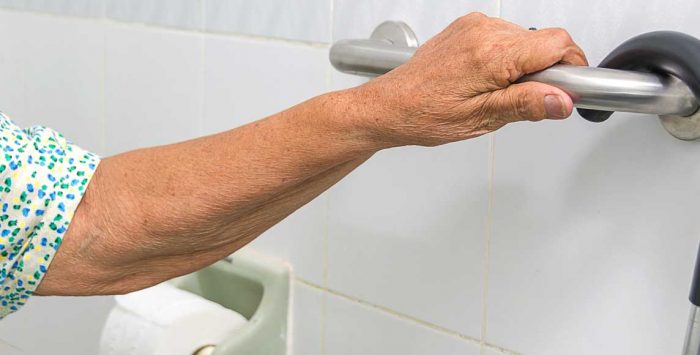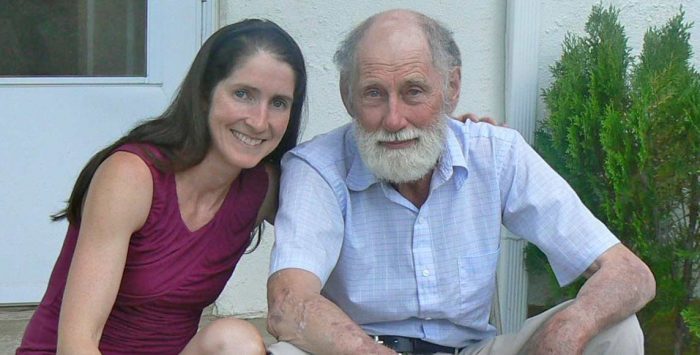Falls are all too common with seniors: as many as one in four people over 65 fall each year and 3 million or more of them will require a trip to the emergency room. Falls can increase your risk for complications like head injuries and fractures – and falling once increases the chance you will fall again.
To prevent falls from happening (or recurring), it’s important to review your risk factors and to take steps that could improve your safety. That may require an evaluation by your healthcare provider.
Will Medicare cover a fall risk assessment for every enrollee?
Every Medicare enrollee gets a health risk assessment as part of the Welcome to Medicare Visit and the Annual Wellness Visit. The Welcome to Medicare Visit is a one-time visit offered to Medicare beneficiaries during their first 12 months of Part B coverage. The Annual Wellness Visit, on the other hand, is offered once every year but no sooner than 12 months after the Welcome to Medicare Visit. All of these visits are provided to Medicare enrollees free of charge.
What is a fall risk assessment?
The health risk assessment includes a range of screenings, one of which is a fall risk assessment. A fall risk assessment will identify medical conditions that might contribute to walking or balance problems.
The assessment also takes into consideration vision changes, and the need for proper fitting shoes – and identifies potential safety considerations in an enrollee’s home (such as throw rugs on the floors, broken or loose stairs, or the need for installation of grab bars in the shower). The health risk assessment will also assess an enrollee’s ability to perform activities of daily living (ADLs) at home.
Can a Medicare enrollee get more than one fall risk assessment each year?
If you have had a serious fall or have had recurrent falls, you may require a more thorough evaluation than the assessments offered through the Welcome to Medicare Visit and Annual Wellness Visit. Depending on your situation, you could require a separate office visit that requires a physical examination and additional testing with laboratory tests and/or imaging studies. These evaluations will be covered by Part B but you will be required to pay the Part B deductible (if you haven’t already met it earlier in the year) and 20% Part B coinsurance for your visit and any medically necessary tests.
Will Medicare pay for modifications to my home to increase accessibility or decrease my risk for falling?
A fall risk assessment may detect safety issues in your home but that does not always mean that Medicare will provide coverage to address them. For example, Original Medicare does not cover the cost of grab bars for your shower, shower seats, traction strips, or walk-in tubs for the bathroom. It also does not cover the cost of stair lifts or modifications that could improve wheelchair access, i.e., wheelchair ramps or widening of doors/hallways.
If I think I need a fall risk assessment, how do I arrange that?
To arrange for a fall risk assessment, reach out to your healthcare provider to schedule your Welcome to Medicare or Annual Wellness Visit. It will be done as part of the health risk assessment that is included with these visits.
If you have already had one of these visits this year and you need a more urgent evaluation – because you have had a recent fall or recurrent falls – you can schedule a routine office visit with your healthcare provider. When scheduling your appointment, explain that you have had recent fall(s) and let them know that you need a fall risk assessment.
Tanya Feke, M.D. is a licensed, board-certified family physician living in New Hampshire. As a practicing primary care physician in Connecticut and an urgent care physician in New Hampshire, she saw first-hand how Medicare impacted her patients. In recent years, her career path has shifted to consultant work with a focus on utilization review and medical necessity compliance.
Dr. Feke is an expert in the field, having Medicare experience on the frontlines with both patients and hospital systems. To educate the public about ongoing issues with the program, she authored Medicare Essentials: A Physician Insider Reveals the Fine Print. Her analysis of Medicare issues is frequently referenced by the media and she is a contributor to multiple online publications. As founder of Diagnosis Life, LLC, she also posts regular content about health and wellness to her site at diagnosislife.com.
Tags: fall risk assessment, in-home care, skilled nursing




